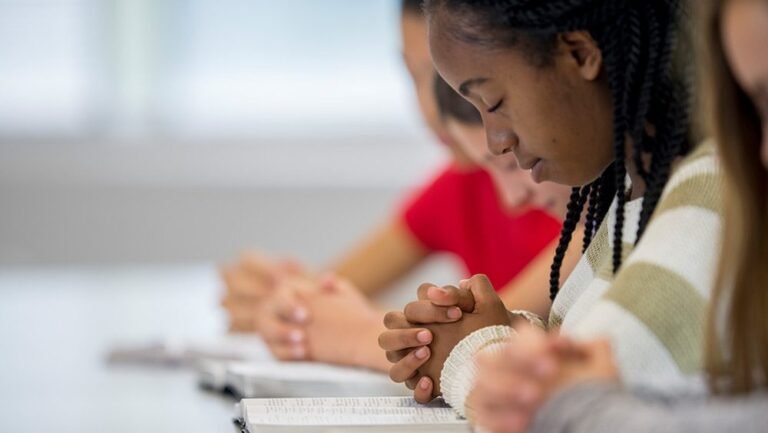The Ultimate Guide to Securing a Student Visa for the USA
The process of obtaining a student visa can be complex and overwhelming, especially for international students who are unfamiliar with the requirements and procedures. It is important to understand the steps involved in the visa application process in order to ensure a smooth and successful experience. The first step in the process is to research and identify the specific visa type that is required for studying in a particular country. This may vary depending on the duration of the program, the level of study, and the country’s immigration policies. Once the appropriate visa type has been determined, it is essential to familiarize oneself with the specific requirements and regulations associated with that visa category. This may include financial documentation, proof of enrollment in a recognized educational institution, and evidence of sufficient ties to one’s home country.
After understanding the visa requirements, it is important to gather all necessary documentation and complete the visa application accurately and thoroughly. This may involve obtaining official transcripts, letters of acceptance from the educational institution, and proof of financial support. Once the application has been submitted, it is crucial to prepare for the visa interview, which is often a mandatory part of the process. This may involve practicing interview questions, gathering additional supporting documents, and familiarizing oneself with the visa officer’s expectations. Finally, it is important to understand the regulations and restrictions associated with the student visa, including any limitations on employment, travel, and duration of stay. By understanding the student visa process and taking proactive steps to meet all requirements, international students can navigate the application process with confidence and ease.
Choosing the Right Visa Type
When it comes to studying abroad, choosing the right visa type is crucial for a successful and hassle-free experience. The specific visa type required will depend on various factors such as the duration of the program, the level of study, and the country’s immigration policies. For example, in the United States, international students typically apply for an F-1 visa for academic studies, while those participating in vocational or non-academic programs may apply for an M-1 visa. It is important to carefully research and understand the specific visa options available and determine which one best aligns with one’s educational goals and circumstances.
In addition to considering the duration and level of study, it is also important to take into account any potential restrictions or limitations associated with each visa type. For example, some visas may have restrictions on employment opportunities or may require students to maintain a full course load throughout their program. It is essential to carefully review and understand these regulations in order to make an informed decision about which visa type is most suitable. Furthermore, it is important to consider any potential opportunities for post-graduation work or residency that may be available with certain visa types. By carefully considering all of these factors and seeking guidance from educational institutions or immigration professionals, international students can make an informed decision about which visa type is best suited to their individual needs and aspirations.
Gathering Required Documentation
Gathering the required documentation for a student visa application is a critical step in the process of studying abroad. The specific documents needed will vary depending on the country and visa type, but there are several common requirements that are typically necessary for most student visas. One of the most important documents is proof of enrollment in a recognized educational institution, such as an acceptance letter or certificate of enrollment. This demonstrates to immigration authorities that the student has been accepted into a legitimate academic program and intends to pursue their studies in good faith.
In addition to proof of enrollment, financial documentation is also a key requirement for most student visas. This may include bank statements, scholarship letters, or affidavits of support to demonstrate that the student has sufficient funds to cover tuition, living expenses, and other costs associated with studying abroad. It is important to carefully review the specific financial requirements for the chosen visa type and ensure that all necessary documentation is gathered and presented accurately. Other common documentation requirements may include a valid passport, passport-sized photographs, and any additional forms or declarations required by the immigration authorities. By carefully gathering all necessary documentation and ensuring that it meets the specific requirements of the visa application, international students can increase their chances of a successful outcome.
Completing the Visa Application
Completing the visa application accurately and thoroughly is a crucial step in the process of obtaining a student visa. The application form will typically require detailed personal information, educational history, and details about the intended course of study. It is important to carefully review all instructions and guidelines provided by the immigration authorities and ensure that all information provided is accurate and up-to-date. Inaccurate or incomplete information can lead to delays or denials in the visa application process, so it is essential to take the time to complete the application form with care and attention to detail.
In addition to providing personal and educational information, the visa application may also require applicants to provide additional supporting documents such as financial statements, letters of acceptance from educational institutions, and proof of ties to their home country. It is important to gather all necessary documentation before beginning the application process in order to avoid delays or complications. Once the application form has been completed and all required documentation has been gathered, it is important to review everything carefully before submission. This may involve double-checking all information provided, ensuring that all required documents are included, and seeking assistance from educational institutions or immigration professionals if needed. By completing the visa application accurately and thoroughly, international students can increase their chances of a successful outcome and minimize potential delays or complications in the process.
Preparing for the Visa Interview
Preparing for the visa interview is an essential step in the student visa application process. The interview is often a mandatory part of the process and provides an opportunity for immigration authorities to assess an applicant’s eligibility and intentions for studying abroad. It is important to approach the interview with confidence and preparedness in order to make a positive impression and increase one’s chances of a successful outcome. One of the most important aspects of preparing for the interview is practicing potential interview questions and familiarizing oneself with common topics that may be discussed.
In addition to practicing interview questions, it is also important to gather any additional supporting documents that may be requested during the interview. This may include proof of financial support, letters of acceptance from educational institutions, or any other documentation that demonstrates one’s intentions and qualifications for studying abroad. It is also important to dress professionally and present oneself in a respectful and courteous manner during the interview. By demonstrating professionalism and preparedness during the interview, international students can make a positive impression on immigration authorities and increase their chances of a successful outcome.
Understanding Visa Regulations and Restrictions
Understanding the regulations and restrictions associated with a student visa is essential for international students who are planning to study abroad. Each country has its own set of regulations governing student visas, including limitations on employment opportunities, travel restrictions, and requirements for maintaining full-time enrollment in an academic program. It is important for international students to carefully review and understand these regulations in order to ensure compliance throughout their stay abroad.
One common restriction associated with student visas is limitations on employment opportunities. Many countries have strict regulations governing whether international students are allowed to work while studying abroad, including restrictions on hours worked per week or types of employment allowed. It is important for international students to familiarize themselves with these regulations in order to avoid potential violations that could jeopardize their visa status.
In addition to employment restrictions, student visas may also have limitations on travel outside of the country or requirements for maintaining full-time enrollment in an academic program. It is important for international students to carefully review these regulations and ensure that they are in compliance throughout their stay abroad. By understanding and adhering to these regulations, international students can avoid potential complications or violations that could impact their ability to study abroad.
Maintaining Visa Compliance and Renewal Options
Once a student visa has been obtained, it is essential for international students to maintain compliance with all regulations and requirements throughout their stay abroad. This may include maintaining full-time enrollment in an academic program, abiding by any restrictions on employment opportunities, and adhering to any travel limitations imposed by the visa. It is important for international students to familiarize themselves with these requirements and take proactive steps to ensure ongoing compliance throughout their stay abroad.
In addition to maintaining compliance with visa regulations, international students should also be aware of any options for renewing or extending their student visas if needed. This may involve submitting additional documentation or meeting specific criteria set forth by immigration authorities. It is important for international students to familiarize themselves with these renewal options well in advance of their visa expiration date in order to avoid potential complications or interruptions in their studies.
Read Also: Tips for Securing Financial Aid as an International Student in the USA
By maintaining compliance with visa regulations and understanding renewal options, international students can ensure a smooth and successful experience studying abroad. It is important for students to stay informed about any changes or updates to immigration policies that may impact their visa status and seek guidance from educational institutions or immigration professionals as needed. By taking proactive steps to maintain compliance with visa regulations and renewal options, international students can maximize their opportunities for success while studying abroad.







